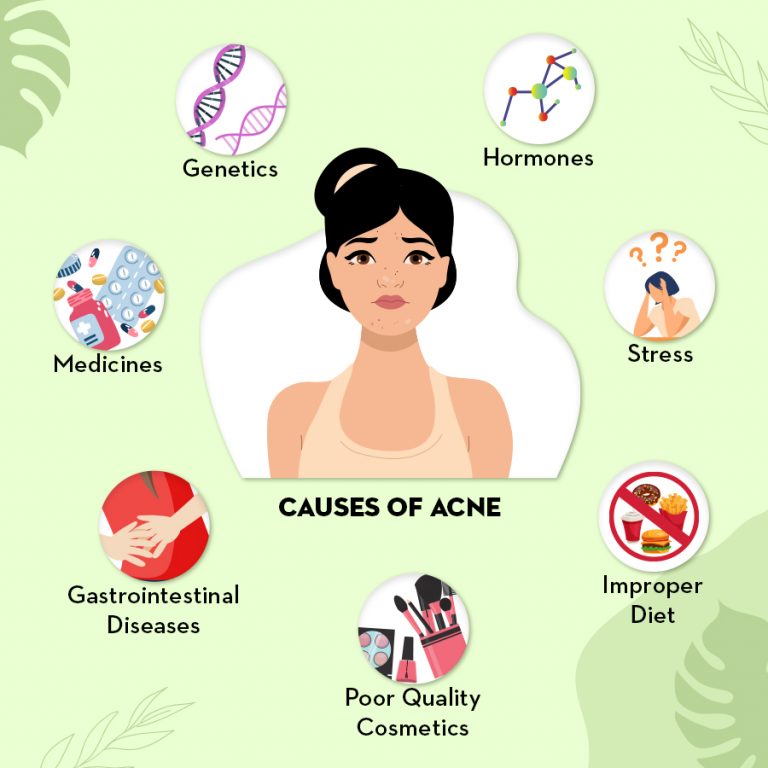Acne is a common skin condition that affects millions of people worldwide, and it can be both physically and emotionally distressing. Understanding what causes acne is crucial in managing and treating it effectively. Dr. Neha Agrawal, renowned as the Best dermatologist in Mansarovar Jaipur, sheds light on the various factors that contribute to acne development and offers professional advice on how to tackle this persistent issue.
The Basics of Acne
Acne occurs when hair follicles become clogged with oil and dead skin cells. This blockage leads to the formation of pimples, blackheads, whiteheads, and sometimes even deeper cysts or nodules. While acne is most commonly associated with adolescence, it can affect individuals of all ages.
Key Causes of Acne
1. Hormonal Changes
Hormonal fluctuations, especially during puberty, menstruation, pregnancy, and menopause, can trigger acne. Androgens, a group of hormones, increase the size and activity of sebaceous (oil) glands, leading to more oil production and clogged pores.
2. Excess Oil Production
Overactive sebaceous glands produce excess oil (sebum), which combines with dead skin cells to form a plug in the follicle. This environment is ideal for the growth of acne-causing bacteria.
3. Bacteria
The bacteria *Propionibacterium acnes* (P. acnes) naturally live on the skin. When pores are blocked, these bacteria multiply rapidly, causing inflammation and leading to acne.
4. Dead Skin Cells
Normally, dead skin cells are shed and carried to the skin’s surface by sebum. However, in people with acne, these cells are not shed effectively and become trapped within the hair follicles.
5. Diet
Certain foods, particularly those high in refined sugars and dairy products, may exacerbate acne. While the connection between diet and acne is still being studied, many people find that their skin improves with a balanced diet.
6. Stress
Stress doesn’t directly cause acne, but it can worsen existing conditions. Stress triggers the release of cortisol, a hormone that can increase oil production and lead to more breakouts.
7. Cosmetic Products
Some skincare and cosmetic products can clog pores, contributing to the formation of acne. It is essential to use non-comedogenic and oil-free products to prevent this.
How to Manage Acne
Dr. Neha Agrawal, the best dermatologist in Jaipur, offers the following tips for managing and preventing acne:
- Maintain a Consistent Skincare Routine
Cleanse your face twice daily with a gentle, non-comedogenic cleanser to remove excess oil and impurities.
- Avoid Touching Your Face
Your hands carry bacteria and dirt, which can exacerbate acne when transferred to your face.
- Choose the Right Products
Use skincare and cosmetic products labeled as non-comedogenic and oil-free. Look for ingredients like salicylic acid, benzoyl peroxide, and retinoids.
- Healthy Diet
Opt for a balanced diet rich in fruits, vegetables, and whole grains while limiting sugary and dairy-rich foods.
- Consult a Dermatologist
If over-the-counter treatments don’t work, consult a dermatologist. Professional treatments, such as prescription medications, chemical peels, and laser therapy, can provide significant improvement.
Conclusion
Acne is a multifaceted condition influenced by various factors, including hormones, bacteria, and lifestyle choices. By understanding these causes, you can take proactive steps to manage and reduce acne effectively. For personalized advice and advanced treatments, consider consulting Dr. Neha Agrawal, the best dermatologist in Jaipur, who has extensive experience in helping patients achieve clear and healthy skin.






Comments